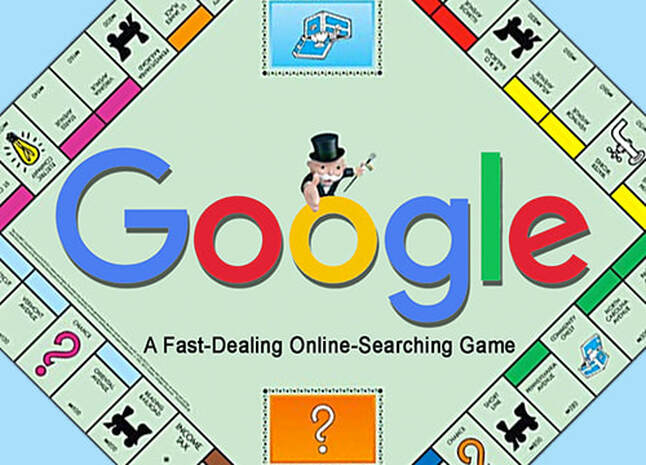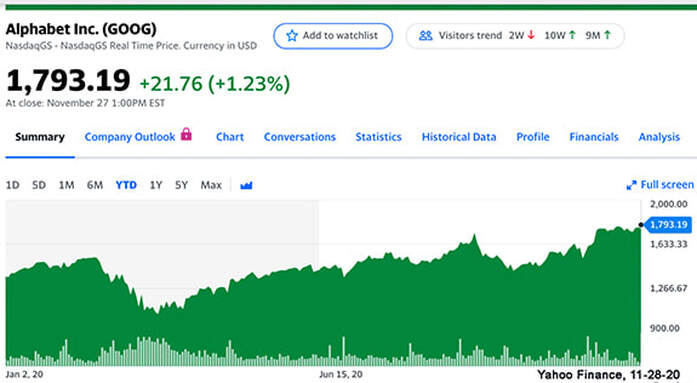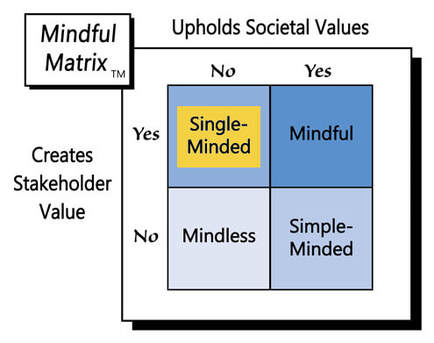author of Honorable Influence - founder of Mindful Marketing
The DOJ recently levied an antitrust lawsuit against Google, “alleging that the online giant engaged in anticompetitive conduct to preserve monopolies in search and search advertising.” Although the lawsuit implies a lack of trust, “The trust in antitrust [actually] refers to a group of businesses that team up or form a monopoly in order to dictate pricing in a particular market.”
Given that Google doesn’t charge people to use its search engine—it’s free for all—it doesn’t make much sense to say that the company colludes with competitors to fix prices.
On the other hand, Google’s inordinately large share of the market for online search, does resemble a monopoly. According to 2017 Net Market Share statistics, Google accounted for 79% of the global search engine market versus just 7.3%, 7%, and 4.9%, respectively, for Bing, Baidu, and Yahoo.
Contrary to what one might think, a monopoly is not necessarily illegal. According to the Sherman Act, it’s fine for a company to hold such a position of prominence, provided that the firm’s “vigorous competition and lower prices [took] sales from its less efficient competitors.” It’s kind of like saying, ‘It’s no crime to be rich, if you made your money honestly.’
Google’s rise to the top appeared to be upright. In 1995, with the Internet in its infancy, Larry Page and Sergey Brin conceived the search engine from their Stanford University dorm rooms. Then, as companies and consumers increasingly spent time online, the firm kept improving its product and riding the wave of web success. Google now has annual revenues of $166 billion and a market cap of $1.20 trillion.
So, if Google’s free product precludes price-fixing and its rise was above reproach, how has the search engine giant run afoul of the law? It has to do with what the company has purportedly done to maintain its preeminent position.
According to the DOJ’s antitrust lawsuit, Google is guilty of acting anticompetitively in search and search advertising in order to “preserve” its monopolies in those arenas. In other words, it’s not what the company did to get to the top, it’s what the firm does to stay there.
It’s important here to reiterate that so far Google has not been found guilty of wrongdoing, it’s only been charged. That said, why would a company that achieved such success honestly, need to resort to maleficence to maintain its status?
As hard as it is to come by success, staying successful can be even harder, for reasons like these:
- Success breeds competitors. When people see someone being successful at something, a natural tendency is to think, “I can do that.”
- Everyone guns for the leader. In sports, subpar teams often play great games when they have an opportunity to beat the defending champion.
- Bigger businesses have more to manage. Even a small company is not easy to run. As an organization grows, so do the number and size of its challenges
- Good ideas are hard to find. It’s difficult to maintain a continual flow of winning ideas.
- Success is addicting. Once you get a taste of success, it’s hard to give it up.
Of course, none of these reasons would absolve Google of anticompetitive practices. If it’s doing what the DOJ alleges, Google is not only breaking the law, it also may be hurting consumers like you and me in more than one way:
Costing us money: According to the DOJ, enforcement of antitrust laws like the Sherman Act, the Clayton Act, and the Federal Trade Commission (FTC) Act “saves consumers millions and even billions of dollars a year.” It’s basic economics: Greater supply means lower prices.
Reducing quality: The FTC also maintains that monopolies impinge on product quality. When customers have no other options, there are fewer incentives for monopolizing organizations to make sure their offerings are great.
In the abstract, these two reasons definitely resonate. The issue, though, is that my positive experience with Google makes it hard for me to pin either of the problems on the company.
Just in writing this piece, I used Google at least a dozen times to search the Web for articles and statistics that I’ve hyperlinked throughout the article. Those searches are in addition to a dozen more Google searches I do each day for work and personal needs. All these searches cost me nothing and I am almost always very happy with the results. So, why isn’t a bigger, more powerful Google better?
Perhaps the biggest downside of monopolies is that they can impede innovation. Companies with monopoly power can lose incentive to innovate, while standing in the way of other firms that would like to offer us cutting-edge products and breakthrough services.
In a monopoly-managed industry, what’s available may seem good because we’re unaware of what could be, i.e., we don’t know what we’re missing.
What if Microsoft had short-circuited the rise of Apple or if big automakers had put the brakes on Tesla? The world wouldn’t be enjoying the innovative products that these firms and other one-time startups have brought to market. I wouldn’t be typing on my MacBook right now.
Competition is good for consumers. It’s also good for the firms competing, as it encourages them to work more efficiently and effectively, which brings out their best: “Iron sharpens iron, so one person sharpens another” (Proverbs 27:17). Every individual and organization should want to do/be their best and, therefore, should welcome competition.
It will be up to the U.S. District Court for the District of Columbia to determine whether Google has been “unlawfully maintaining monopolies through anticompetitive and exclusionary practices in the search and search advertising markets.” However, if the Court does uphold the charges, the company also could be cited for “Single-Minded Marketing.”
Learn more about the Mindful Matrix.
Check out Mindful Marketing Ads and Vote your Mind!





 RSS Feed
RSS Feed